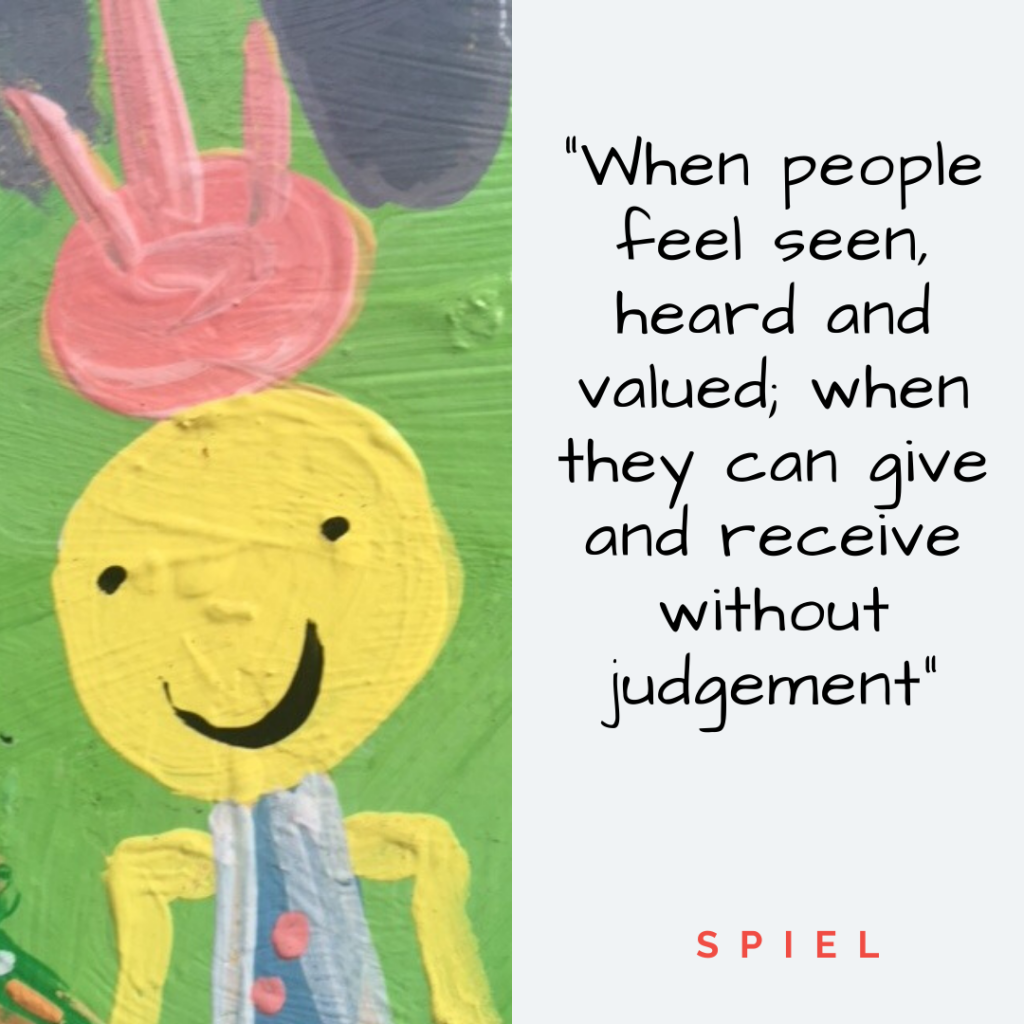
The importance of play
20/03/2020
The importance of play
20/03/2020
They are ok the way they are.
In a world full of uncertainties, anxieties and an over-performance culture of never being good enough, the biggest gifts that parents can give to children is a true sense of belonging, hope, courage to dare greatly and the notion that they are ok the way they are.
It is our responsibility to teach them the art of resilience and mindfulness. It is parents who can empower children to help them understand their emotions, accept them for who they are, identify their unique strengths, find their potential and purpose in life, nurture their spirituality and cultivate human connection.
Humans are hardwired for connection.
The two most powerful forms of connection are unconditional love and a sense of belonging. They are essential to the human experience. It is what makes us ‘tick’. In her bestselling book ‘Daring Greatly’, Social researcher Brené Brown defines connection between people ‘when they feel seen, heard and valued; when they can give and receive without judgement.’
True belonging is part of our DNA. We all desire to be part of something bigger than us and to be accepted for who we are despite all our vulnerabilities.
We all need to belong to a ‘tribe’, to a ‘cause’, to a community that accepts us for who we are, our authentic selves. The starting point is our family as the learning platform to practise true human connection.
Cultivating connections with our children and building meaningful, long-lasting relationships requires paying attention and engagement. Engagement means investing time and energy which requires sacrifice. Sacrifice means to ‘make sacred’. As parents, we are called to make our relationships with our children truly sacred.
We only have one shot at this.

The challenge is that most parents are feeling time-poor, and often lack the energy of fully engaging with their children. Overscheduling our children, filling every free minute with activities and entertainment, the speed of technology and the endless deluge of the Internet have resulted in our lives becoming cluttered and disjointed. All this can lead to a profound disconnect between parent and child.
The good news is that it does not require much to shift this paradigm. Simplifying our lives can often help us to create space for re-connection, building relationships and being more engaged. Simplifying means creating more space for awareness, attentiveness, connectedness and finding the sacredness in all things.
Kim John Payne, international renowned family consultant and founder of the Simplicity Parenting Movement, help parents to reclaim the space and freedom that we all need to deepen our attention with each other.
Underpinning his philosophy are four realms that provide sparks of connection that can easily be incorporated in our busy lives:
- De-cluttering our home environments
- Establishing healthy routines
- The importance of free time
- Limiting the intrusion of media and other external influences into the home.
The underlying mantra is ‘less is more.’ De-cluttering the home environment in relation to clothes, toys, gadgets and a home that filters out constant stimuli is key. The less we have to worry about, the less anxious we get, the fewer battles we have to fight and the more aware we become of each other.
Limiting the 24/7 access to media, setting clear viewing and social media boundaries, eliminating watching TV during meal times and conversing in the car instead of listening to music or talkback radio helps us to practise being more attentive.
Healthy rhythms, routines and rituals provide islands of consistency, calmness and ample opportunities for connection. A regular cup of hot chocolate at the end of the school day, a daily sit-down dinner with a lit candle, a nighttime prayer, the walk to school, a back rub – these are moments where we can share ourselves, our fears, hopes, struggles and joy.
Allowing children and parents to have ‘nothing to do’ time is at the core of simplifying.
It is in those ‘dawdle’ moments where we create the most amazing sparks of connection and memories.
Be it lying on your back in the grass together and watching the clouds go by, drawing a picture together, eliminating a structured afternoon activity in lieu of just being together, keeping weekends free, having a ‘sabbath’ moment or reflecting together on the events of the day.
Building connection thrives on having time for each other without having to meet any expectations and being truly present in the moment.
Simplifying is about stepping back, re-evaluating life and creating pockets of connection that help to build resilience, a sense of hope, belonging and cultivate mindfulness. Eliminating unnecessary stimuli, providing sanctuaries of calm and establishing healthy rhythms not only foster more meaningful relationships but make for much happier families.
It is in those simple moments that we deeply connect and engage with each other on a most sacred level. Martin Buber, an Austrian-born philosopher, once wrote: “When two people relate to each other authentically and humanly, God is the electricity that surges between them.”
